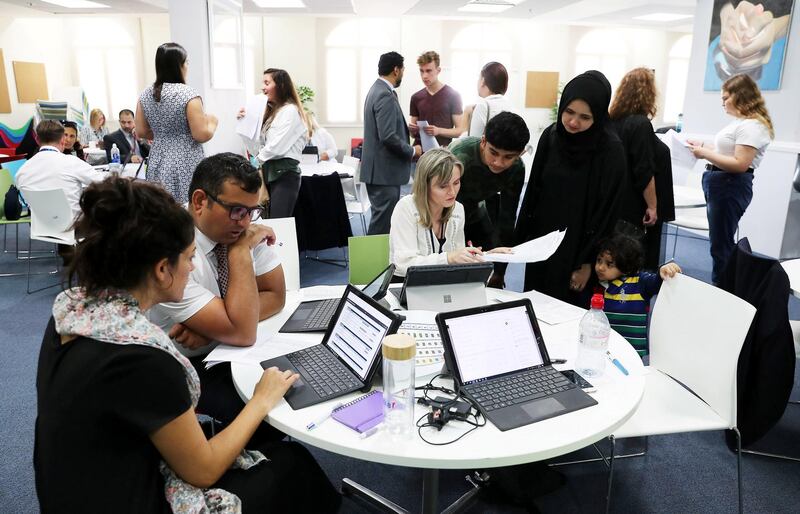Pupils around the world should be braced for disappointment after a major company administering A-Levels said the majority of revised grades had been marked down.
But online the backlash had already started as Cambridge Assessment International Education was criticised for determining the results with the help of a standardisation and ranking process that was brought in after physical examinations were cancelled amid the height of the Covid-19 pandemic.
It also took into account teacher-predicted grades, the rank order of pupils in their class and the historic performance of the school.
A popular qualification provider in the UAE, Cambridge International said more than 950,000 grades were issued to close to 4,000 schools in 139 countries.
A little under half of the grades awarded to pupils were the same as those predicted by the teachers, Cambridge International said.
“Predicted grades for June 2020 were higher than historical school performance data for the last three years, which is understandable as teachers want to see their pupils succeed.
"The rank orders teachers created were a key part of this process, and have stayed the same throughout the process,” it said.
The proportion of A-Level candidates worldwide achieving A* to E increased by 4.2 percentage points. The average rise across all grades at A-Level was 4.6 percentage points.
In four hours, a petition on change.org calling on Cambridge International to review its grading process had attracted more than 2,600 signatures.
Christine Ozden, the chief executive of Cambridge International, said a priority was ensuring that pupils were given grades that could be trusted by employers and universities around the world.
“We engaged worldwide with other awarding bodies, governments and universities to develop our process for awarding grades. It works across the many different countries in which we work, and is similar to the process used in the UK,” she said.
The news follows the admission by the Scottish government that it did get it right over local exam results as evidence mounted that poorer pupils were unfairly affected by the moderation process. It has reversed the downgrading of its results.
Another respected course provider, the International Baccalaureate, also came under fire after many teacher-predicted grades were lowered.








